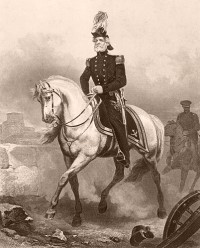|
A Brief History of Quitman County
Quitman County was named for John A. Quitman,
Governor of Mississippi from 1835-1836, and again from 1850-1851.
 QUITMAN, John Anthony (1799-1858)
Born in Rhinebeck, N.Y., September 1, 1799. Member of Mississippi state
house of representatives, 1826; member of Mississippi state senate,
1835; Governor of Mississippi, 1835-36, 1850-51; state court judge,
1838; U.S. Representative from Mississippi, 1855-58. Died near Natchez,
Miss., July 17, 1858, presumably from poison secretly placed in food
served at a banquet in Washington, D.C. during the inauguration of
President Buchanan. Interment at Natchez City Cemetery, Natchez, Miss. QUITMAN, John Anthony (1799-1858)
Born in Rhinebeck, N.Y., September 1, 1799. Member of Mississippi state
house of representatives, 1826; member of Mississippi state senate,
1835; Governor of Mississippi, 1835-36, 1850-51; state court judge,
1838; U.S. Representative from Mississippi, 1855-58. Died near Natchez,
Miss., July 17, 1858, presumably from poison secretly placed in food
served at a banquet in Washington, D.C. during the inauguration of
President Buchanan. Interment at Natchez City Cemetery, Natchez, Miss.
The story of the first -- or certainly among
the first settlers, is interesting. His name was Thomas B. HILL. From
whence he came the annalists have not learned. He was a man of great
wealth. He brought 100 slaves and used them to clear a great plantation
in the heart of the Delta. His plantation lay along the banks of what
was then called Moore's Bayou. Even before the man named Hill arrived
in this region, a man named MOORE established a home upon the banks of
the Coldwater. Moore was a trapper and woodsman, locating here perhaps
without legal title to the land. Mr. Hill ousted the old man, but the
stream continued to be called Moore's Bayou for many years. It was
later renamed Cassidy for Wiley B. CASSIDY, a lumberman.
The affluent pioneer, Thomas B. Hill, built
with slave labor a palatial brick home, which was almost a fortress.
The walls were made very thick to protect him against uprisings of his
slaves in the wilderness, and for protection from the wild and unruly
inhabitants who lived on the banks of the Coldwater river, in the heart
of the jungle. When Thomas B. Hill died his slaves buried him in an
Indian mound, but the location is not known to anyone in Quitman
County. He was a man of eccentricities and whims. However, he was a man
of great prominence. James L. ALCORN, who was not far away, was his
friend and often visited him in his "Castle" on the bank of the
Coldwater.
In 1877, when Quitman County was organized, the
old brick house was still standing. It was the first courthouse of the
county. It was called Belen, instead of Hill's landing. Before a
courthouse and jail could be built, Hill died, leaving the property to
minor heirs. Since legal title could not be given, Dr. PHIPPS, who
owned land nine miles west of Belen, gave land for the location of the
county cite. In 1881 the courthouse was moved to this new location, and
took the name Belen with it. Thus, Hill's Landing was called "Old
Belen". Later at the suggestion of the post office, it was changed to
Riverside.
In 1910 Quitman County became dissatisfied with
the location of the courthouse, and decided that it should be moved to
the now thriving new town of Marks. In 1911 a palatial courthouse was
established on the old site of Hill's landing, and the "Baby City of
the Delta" was born. The earliest tradition of Quitman County hover
over the beautiful courthouse of a young and prosperous county.
From: Notes by Mrs. M. Box Malone and "Old Traditions in a New Land" by Geo, Morland.
|